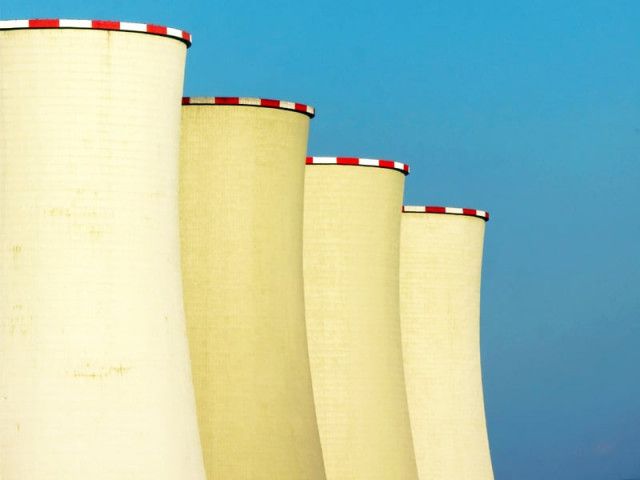Not so independent: Power producers to pay more for gas supply
Cabinet likely to approve 18 % increase in gas tariff for IPPs, 2 weekly holidays, infrastructure cess.

The cabinet, scheduled to meet today (Wednesday), is likely to approve increase in gas tariff for independent and captive power plants under the tariff rationalisation plan, a move that will lead to a rise in power prices, sources say.
In the meeting, the cabinet is also expected to approve two weekly holidays and closure of shops at 8pm under an energy conservation plan and imposition of infrastructure development cess on natural gas to raise funds for gas pipeline projects.
Sources said gas prices for independent power producers (IPPs) and captive power plants would be brought on a par with gas tariffs for plants of Water and Power Development Authority (Wapda) and power stations of Karachi Electric Supply Company (KESC).
At present, IPPs pay Rs377.39 per million British thermal unit (mmbtu) for gas supply and captive power plants receive gas at the rate of Rs434.18 per mmbtu. Wapda and KESC are paying Rs447.14 per mmbtu for gas supply to their power plants.
After the cabinet’s decision, gas price for IPPs will rise by 18.4 per cent to reach Rs447.14 per mmbtu, which will also the push power tariff up.
According to officials of the water and power ministry, the cost of power produced by gas is 50 to 60 per cent less than that for electricity generated by furnace oil. Furnace oil-based power generation costs Rs13 to Rs18 per unit whereas gas-fired power plants cost Rs3 to Rs5 per unit.
Cess on natural gas
Talking to The Express Tribune, Petroleum Minister Dr Asim Hussain said a summary had been sent to the cabinet to get approval for infrastructure development cess on natural gas. He said the new tax would cover all types of consumers except for domestic consumers. “The government will generate Rs40 billion through this tax that will be utilised to finance gas pipeline projects.”
Conservation plan
According to an official of Pakistan Electric Power Company (Pepco), the energy saving plan implemented last year saved 1,000 to 1,300 megawatts per day.
Prime Minister Yousaf Raza Gilani, in a high-level meeting on energy held on October 3, directed Water and Power Minister Naveed Qamar to take provinces on board over the issue of two weekly holidays to overcome energy crisis. Punjab has been critical of the proposal and believes that it negatively affects national productivity. It is unclear whether the central government has taken provinces on board or not.
After the energy meeting, the government paid Rs10 billion to cash-strapped Pakistan State Oil (PSO), but now its receivables have accumulated again that can hamper furnace oil supply to power companies.
The country is facing energy shortages and if the government fails to find new gas reserves the crisis may aggravate during peak demand in winter. Oil and Gas Development Company (OGDC) is working on Kunnar Pasakhi field to produce 100 million cubic feet per day (mmcfd) of gas in the first phase to cope with shortages.
IPPs, textile and fertiliser companies seek long-term government guarantees for gas supply to ensure security of their investment. The private sector has also voiced concern over performance of chief executive officers of power distribution companies and demanded that professionals should be hired to improve services.
At present, domestic production stands at four billion cubic feet per day (bcfd), which will drop to 2bcfd in 2020 according to estimates of gas utilities. Exploration companies have not been able to make new discoveries due to poor law and order situation, especially in resource-rich Balochistan.
Published in The Express Tribune, October 12th, 2011.



















COMMENTS
Comments are moderated and generally will be posted if they are on-topic and not abusive.
For more information, please see our Comments FAQ